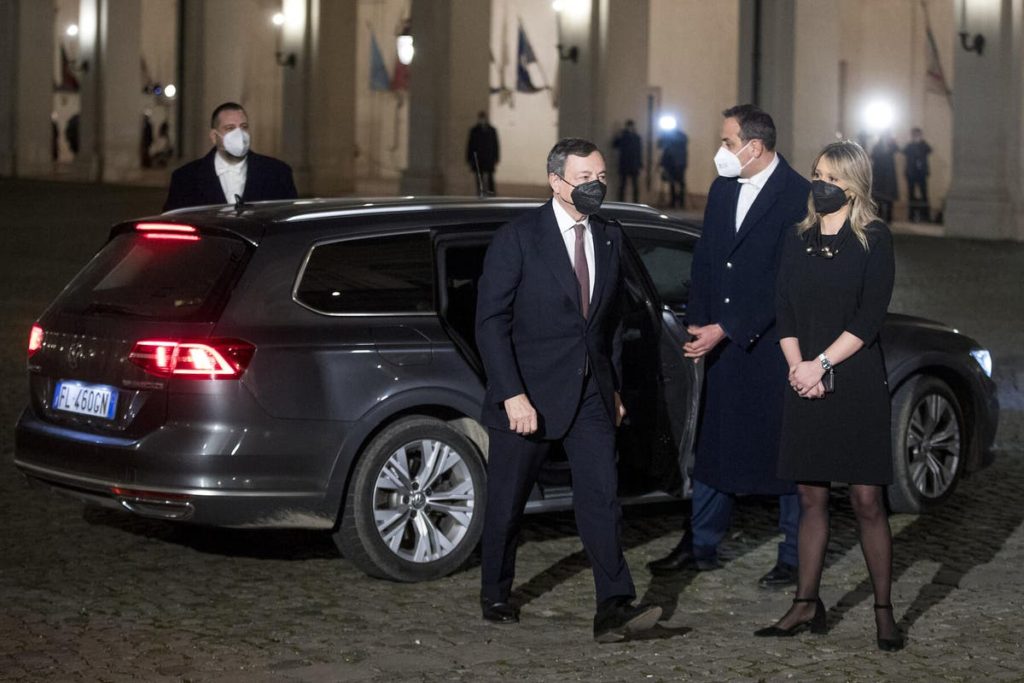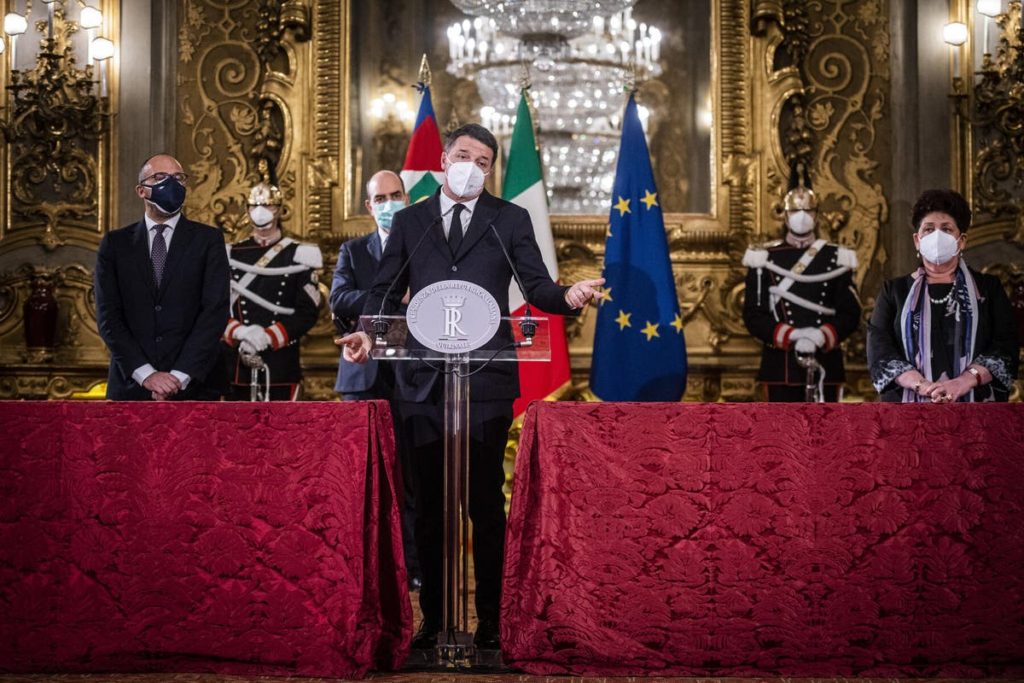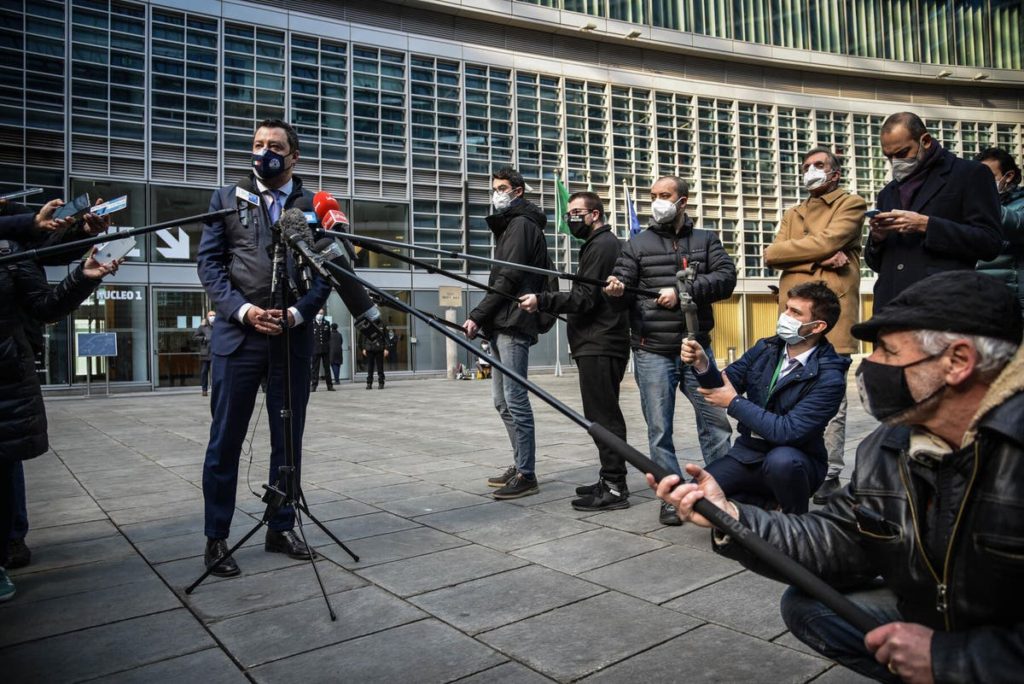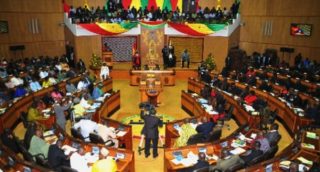The former European Central Bank chief, picked as a consensus prime minister, will look to lead the country out of the coronavirus crisis and repair the economic damage left by the pandemic.
Mario Draghi, a respected economist who once headed the European Central Bank, gathered enough support on Friday to form a national unity government with wide support in Parliament in hopes of leading the country out of the coronavirus crisis and the economic damage caused by the pandemic.
Mr. Draghi accepted a mandate from Italy’s president, Sergio Mattarella, to form a new cabinet and seek a vote of confidence in Parliament. But his rise has already reshaped the country’s fragmented political landscape.
The new government is expected to prioritize Italy’s vaccination campaign, expand welfare protections for those out of work and increase support for healthy companies and for education. Mr. Draghi is also likely to tackle measures that Europe has long pressed Italy to implement, such as streamlining bureaucracy, making the justice system more efficient and instituting a tax overhaul.
The new cabinet will include mostly politicians, but also some technocrats like Daniele Franco, the director general of the Bank of Italy, as economy minister, and Marta Cartabia, the former president of Italy’s Constitutional Court, as justice minister. Mr. Draghi maintained some ministers from the former government in key positions, like the head of the health ministry.
The government is bringing together an unlikely array of rival parties from both ends of the political spectrum, from the historical liberals to the anti-establishment movement, and the far right.
The left-wing Democratic Party will join the nationalist League party, Silvio Berlusconi’s center-right Forza Italia party and the populists of the Five Star Movement. Luigi Di Maio, the current foreign minister and a top Five Star official, has in the past called Mr. Berlusconi, a media tycoon and former prime minister, a “traitor.”
Last week, Mr. Mattarella, the president, called for a high-profile government after political leaders failed to reshuffle the wobbly coalition government of Prime Minister Giuseppe Conte. Mr. Conte was toppled after Matteo Renzi, the leader of a minority party and another former prime minister, pulled his support.

After Matteo Renzi, center, withdrew his support for the government of Prime Minister Giuseppe Conte, the way was cleared for Mr. Draghi to take the reins. Pool photo by Alessandro Serrano
Mr. Draghi received an enthusiastic endorsement from Italy’s pro-European forces and the centrists who represent the country’s business elites. He also won the support of the populist Five Star Movement which, while hemorrhaging support in polls, is still the biggest party in Parliament.
“Our destiny is not disengagement,” Luigi Di Maio, Italy’s outgoing foreign minister from the Five Star Movement, said in a Facebook video, adding that it would be unforgivable to let other parties spend the European relief funds Italy will receive. “I think we should participate.”
But the populist party only gave final clearance to Mr. Draghi’s government on Thursday night, after it said that a majority of its core members approved joining the government.
Even Mr. Conte, the outgoing prime minister who initially hoped to have a chance to form the new government through a reshuffle, said he would cast his vote for Mr. Draghi’s government.
“There are such urgent needs that it’s a good thing anyway to have a government,” he told reporters on Wednesday.
The leader of the nationalist League party, Matteo Salvini, also decided to cooperate. Had he opposed the new government, he would have risked upsetting his strong base in Italy’s industrial north.
Mr. Salvini also seized the opportunity to have a say in the substantial national recovery plan that Mr. Draghi will manage in the coming months.
“We can be part of a government that thinks about growth,” Mr. Salvini said during a news conference on Tuesday. “We trust Professor Draghi.”

“We can be part of a government that thinks about growth,” said Matteo Salvini, leader of the nationalist League party. “We trust Professor Draghi,” he added. Matteo Corner/EPA, via Shutterstock
For Mr. Salvini, who back in 2018 donned “Enough Euro” T-shirts and defined the European Union as a “pit of snakes and jackals,” endorsing the former head of the European Central Bank represents a radical shift. Even on the issue of immigration, talks with Mr. Draghi seemed to have already softened his usually harsh language.
“On immigration, I just want a European approach,” he said.
With that, Mr. Salvini signaled that he was ready to compromise even on his most crucial battle in recent years, one that helped his party gain support in public opinion as well as in elections.
“Draghi’s appointment already had an effect,” Andrea Orlando, the Democratic Party’s deputy secretary, wrote on Twitter last week. “Salvini became pro-European in 24 hours.”
FEATURED IMAGE: Mario Draghi, Italy’s designated prime minister, arriving at the Quirinale palace in Rome to meet with President Sergio Mattarella on Friday.Pool photo by Roberto Monaldo
By Gaia Pianigiani and Emma Bubola/The New York Times







